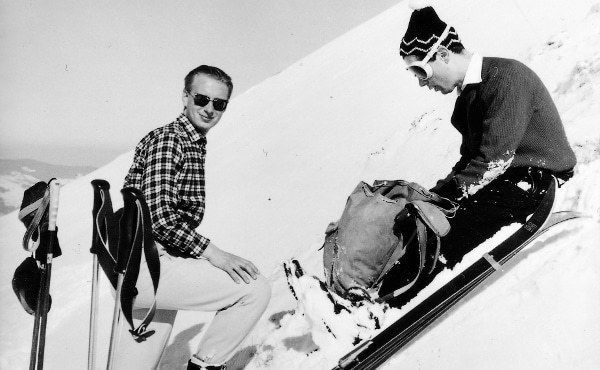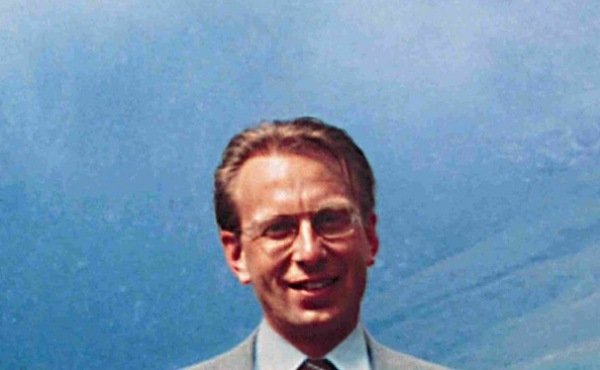Download newsletter in pdf format
After a professional meeting at the headquarters of the Limmat Foundation in Zurich, Toni Zweifel was driving a Frenchman, Michel Baroni, to the central station. On the way they got into a minor traffic jam, but it became more and more doubtful whether they would still reach the train to Paris on time. Toni let his guest get off at a certain point and sent him on foot to take a shortcut. But in vain, Baroni arrived two minutes late. To his surprise he found not only the train waiting at the platform, but also Toni. He had arrived in time with the car and had persuaded the conductor to wait until Baroni arrived. “You see,” he said to him with a smile, “here in Switzerland we will do anything for a Frenchman, even let a train leave late!”
This anecdote illustrates the typical way Toni cared for the needs of others: courteously and at times inventively. From St. Josemaría he had learned that charity – caritas – does not exhaust itself in organizational and financial commitment to humanitarian goals, but must first and foremost shape your life with those close around you.
Toni’s presence made you feel good. He was always available for conversation, chores or solving specific problems. That was not to be taken for granted because he was involved in many difficult tasks. Therefore, he often divided his time to the minute, and thus might have to change his plans unexpectedly. But he always did this in the most pleasant way. He lovingly took care of his mother’s needs. She suffered from depression as she grew older, and always sought moral support in him. Toni devoted many long phone calls to her and wrestled free days from his work to visit her and to accompany and encourage her.

Like everyone who has family and professional contacts with people, Toni also encountered the mistakes and limitations of others. He met these with great understanding and patience. To avoid falling into a negative attitude, he deliberately focused on each person’s positive sides, which he then sincerely admired. Sometimes he went so far as to write down these merits and to consider them in prayer. But that did not stop him from alerting someone to his mistakes, if it was objective and appropriate; but he also always did this in a kind and encouraging way. Conversely, he let himself be corrected. In the beginning, he tended to be over-exacting in his use of time. For example, after coffee in the early afternoon, he left the house for the office at lightning speed. One day somebody pointed out to him that this caused some unease and tension among the others. Toni immediately changed his habit. From then on, he stayed at home for a few more minutes and did a few things before returning to work.
If Toni was treated unfairly, he reacted calmly and charitably. This was particularly impressive when he was about to carry out his project of building an international conference center. At this point, a massive, many-month- long media campaign was unleashed with humiliations and false claims, causing the project on which he had worked with the best of intentions for years to be canceled. Yet, during that entire time, not a single bitter or derogatory comment escaped him, not even in the most private circles.
In short: his Christian faith had made Toni a very affable person: cheerful, sensitive, helpful, radiating confidence. In him, the often-cited ideal of love of neighbor had become a concrete reality.
